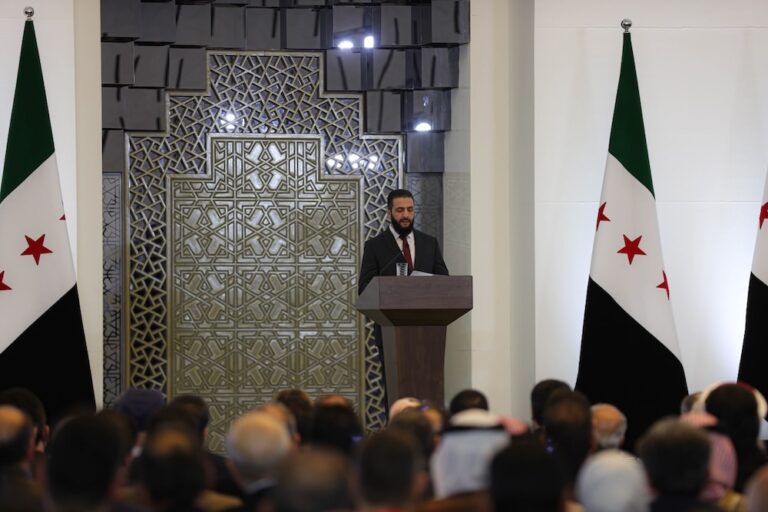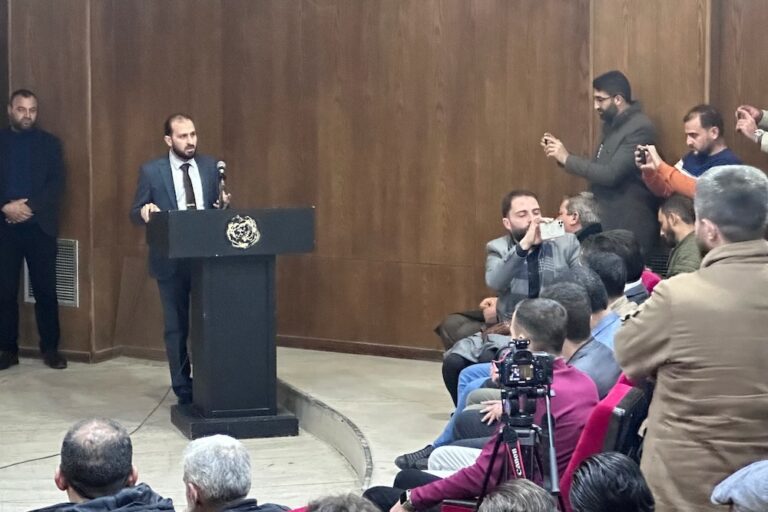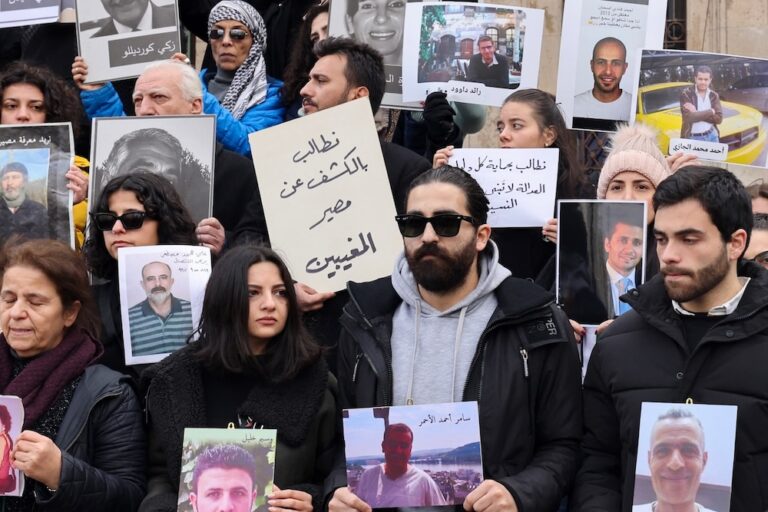In a separate incident, a British journalist said he and his colleagues were deliberately led into a trap by rebels so that they might be shot and killed by the Syrian army.
(RSF/IFEX) – 12 June 2012 – A Brazilian journalist who entered Syria legally was arbitrarily arrested by the army on 19 May and spent six days in detention, cut off from the outside world. Here he tells Reporters Without Borders about his ordeal.
At the same time, a British journalist said he and his colleagues were deliberately led into a trap by rebels so that they might be shot and killed by the Syrian army.
Klester Cavalcanti, 42, a journalist with the Brazilian magazine IstoÉ, was granted a visa and planned to report on the living conditions of the residents of the northern city of Homs, devastated by fighting between rebels and government forces in February. He arrived in Damascus on 19 May and immediately boarded a bus for Homs.
He arrived at the bus station about 3 p.m. and took a taxi to the town centre. The cab was quickly stopped by Syrian troops and, ignoring his journalist’s visa, the soldiers took him to a police station.
He was handcuffed and questioned briefly. Like the troops who had detained him earlier, the police officers asked him what he was doing in Homs.
Again, the journalist replied: “I am here to do my job and my presence has been authorized by the Syrian government.” His request to make a telephone call was refused.
At one point, an officer presented him with a blank sheet of paper and took a cigarette from his pocket, telling him: “If you don’t sign this paper, I shall burn your eye.” Cavalcanti refused to comply. The officer lit the cigarette and stubbed it out on the journalist’s face, close to his eye. He signed the sheet.
Early the morning, Cavalcanti was transferred to a prison where he was locked in a cell with about 20 other prisoners. One of the inmates who spoke a little English was able to communicate with the Brazilian, telling him some of them had fought against the Syrian army, while others had committed minor offences.
Compared with the police station, “it wasn’t so bad,” Cavalcanti recalled, were it not for the fact that he had no idea what was happening. “I didn’t know anything about anything,” he said, being kept in complete darkness for six days.
On 25 May, without explanation, he was let out of his cell and taken to Damascus, then released. Because his visa had expired, he was forced to stay in the Syrian capital for two days. Once his status was rectified, he left for Lebanon in a car provided by the Brazilian embassy. He said he did not feel a real sense of freedom until he had crossed the Lebanese border. He flew back to São Paulo from Beirut.
Despite his release, Cavalcanti is still baffled. “I still think about what happened to me,” he said, adding: “No one has ever told me what I did wrong”.
Reporters Without Borders said: “For months the Damascus government has been threatening journalists who enter the country illegally. They even published a list of them on 31 May. The Brazilian journalist’s account of what happened to him makes it clear that, even when they have visas, those working in the media are not immune to the arbitrary behaviour of government-affiliated security forces. Such actions must be stopped.
“The safety of information providers, journalists and citizen journalists, Syrian and foreign, must be guaranteed, not only by the Syrian army itself, but also by the Free Syrian Army.”
Indeed, the press freedom organization is also concerned at a report by the British journalist Alex Thomson of Channel 4 News, who published a blog on 8 June entitled “Set up to be shot in Syria’s no man’s land?”.
He describes how anti-Assad rebels set a trap for him and his colleagues as they left Al-Qusayr, a rebel stronghold in western Syria, leading them into a Syrian army “free fire” zone.
“I’m quite clear the rebels deliberately set us up to be shot by the Syrian Army,” the journalist wrote. “Dead journos are bad for Damascus.”
In January this year, Reporters Without Borders received reports from foreign reporters alleging they had been put at risk by Free Syrian Army rebels who gave the regular army details of their position.


